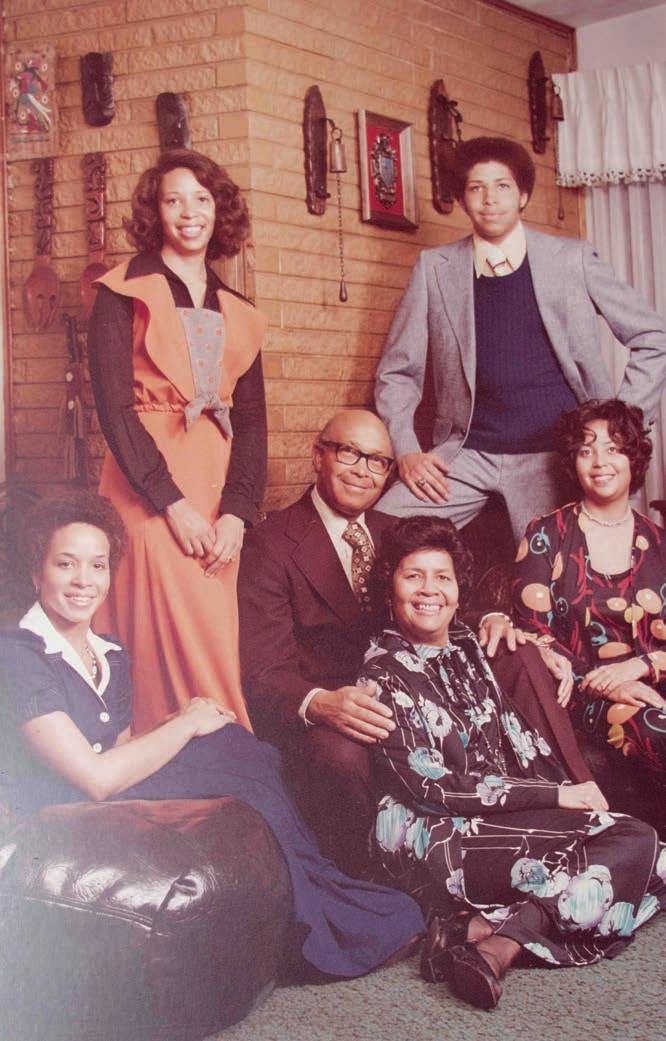
4 minute read
The grip of a group
Becoming and remaining part of a group is more than a choice. It is a demand of the human psyche. For all the blather about individualism, a tenet of secular American religiosity, belonging is the dominant human social gene. It is as instinctive to human behavior as walking, eating, and copulating. In fact, individualism is not part of the human social genome. It is a relatively modern idea, a philosophy, a choice birthed during the Age of Enlightenment. More than we need to belong, we want to belong. Belonging to a group fosters good mental health and social cohesion, which is requisite for survival. Unbelonging induces loneliness, which leads to despair. One of the worst punishments that can be imposed on someone for not following a group’s rules is banishment or ostracization. Whether political exile, solitary con nement, or shunning, forced separation from a group or society can cause deep distress and potentially irreparable harm. While some groups wither away, others last long after current members move away or die. Groups —
Letter To The Editor
Homelessness in Olde Town
I believe the problem with the addicts and the homeless can be directed directly at the RTD G Line.
Its no coincidence that we started having this problem when the G Line opened. e last time I used the G
JERRY FABYANIC
families, religions — are greater than the sum of their parts and thus hold an even more dominant grip on their members. If and when a member separates from the group, there can be hell to pay for it. at is especially true with cults.
Groups like school classes that are formed by happenstance and have a select, nite number of speci c members gradually wither away as nature takes her course. Others like the local Elks or Hotrod Club might or might not fade away when members move on. Friendship groups formed organically eventually die too.
Choosing to detach from a group can be excruciating because the group, whether social or religious, holds power over the individual, and it never likes when a member says, “Tata. Time to go.” Leaving a group is considered the worst form of heresy. A good friend posed this question e mayor and the city promised us Nirvana when the G Line opened. Everyday I see its empty train cars, even at rush hour, pass me. Now we are getting
Line, with my grandkids, I couldn’t believe all the homeless people camped out at the RTD station.
LINDA SHAPLEY Publisher lshapley@coloradocommunitymedia.com
MICHAEL DE YOANNA Editor-in-Chief michael@coloradocommunitymedia.com
Call first: 27972 Meadow Dr., #320
Evergreen, CO 80439, 303-566-4100
Mailing Address: 750 W. Hampden Ave., Suite 225 Englewood, CO 80110
Phone: 303-566-4100
Web: ArvadaPress.com
To subscribe call 303-566-4100 daunting issue and I often hear “we don’t even know where to start.” Well, neighbors, here are two ideas that we can move forward with today! If you support either of these ideas, you can let our Arvada leadership know your support for participation in the Proposition 123 funding program or make donations to nonpro ts like Beyond Home that is doing direct work in moving people towards self-su ciency in our community. ank you to the Arvada Press for sharing great information on such an important issue like housing. Let’s keep the conversation going.
Lisa Smith is a member of Arvada City Council. She can be reached at lsmith@arvada.org
KRISTEN FIORE West Metro Editor kfiore@coloradocommunitymedia.com
RYLEE DUNN Community Editor rdunn@coloradocommunitymedia.com to me: “Why do we often hang on to a group after we realize that remaining part of it no longer serves a good purpose and is, therefore, not good for our social or mental health?” en he added, “It’s the moment when you really admit something no longer works for you. It evolves slowly and you feel it coming. en you nally admit it and know it. You continue anyway because whatever it is—group, activity, people—it brought you happiness in the past. You hang on despite the payo being minimal or even negative. But you continue. Why? No good alternatives? Force of habit? Don’t want to o end? And all the time, your inner core continues to melt because you are not being true to yourself and nding new things like you used to.”
Hmm, I thought. Yes, all of those, and possibly more.
One of my favorite lms is Brokeback Mountain, a story about two young cowboys — more accurately, sheepherders — who fall passionately in love. From the outset, you have a sense, and even know, that the story will not have a happy end- the homeless problems from Denver. e mayor now calls for action!
Where have you and the progressive city council been for the past few years? It’s now a problem? My daughter quit a job in Olde Town because of all the stealing and rambles of the
MINDY NELON Marketing Consultant mnelon@coloradocommunitymedia.com
AUDREY BROOKS Business Manager abrooks@coloradocommunitymedia.com
ERIN FRANKS Production Manager efranks@coloradocommunitymedia.com
LINDSAY NICOLETTI Operations/ Circulation Manager lnicoletti@coloradocommunitymedia.com ing given it is set in Wyoming in the 1960s, 1970s and 1980s. ey tear at each other in frustration, but they can’t seem to end — quit — the relationship. ey are full of angst about it, and that is relatable to almost everyone, whether in the context of a one-on-one relationship or a group. Ending a relationship is di cult. I don’t have a good answer for my friend other than to say we should step back and note the power and attraction of both the groups you would like to separate from and the ones you want to stay in. en work to sort out why you want to separate from the ones you want to leave instead of focusing on the challenge of detaching. It’s like breaking an addiction. e rst step is to recognize the problem. e second step is to note the emotional attachment to it. If it doesn’t feel good, why keep doing it? at is when the power of choice come into play. homeless.

Time to move on.
Jerry Fabyanic is the author of “Sisyphus Wins” and “Food for ought: Essays on Mind and Spirit.” He lives in Georgetown.
Now we have meth in the library. Surprise, surprise! Olde Town is becoming like downtown Denver and our politicians are always too late to solving problems.
David Albertsen, Arvada
Columnists & Guest Commentaries
Columnist opinions are not necessarily those of the Press. We welcome letters to the editor. Please include your full name, address and the best number to reach you by telephone.
Email letters to kfiore@coloradocommunitymedia.com
Deadline Wed. for the following week’s paper. To opt in or out of delivery please email us at circulation@ coloradocommunitymedia.com









